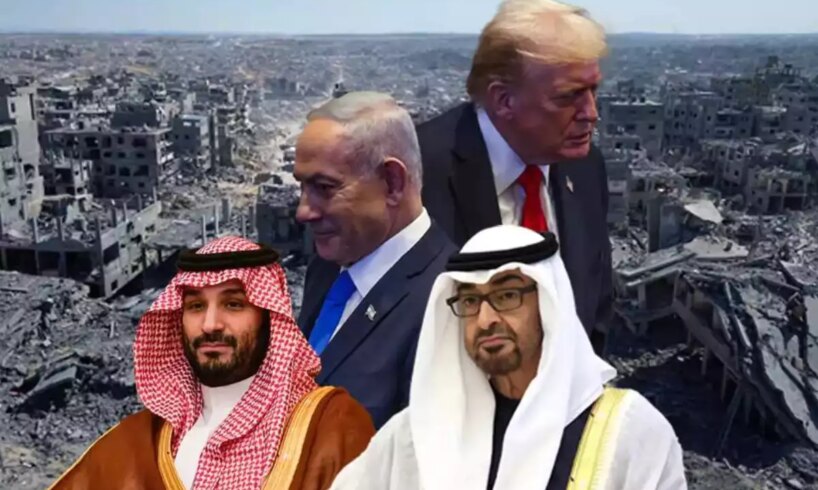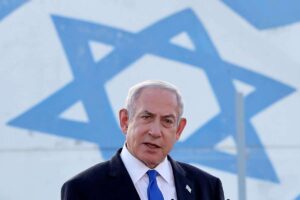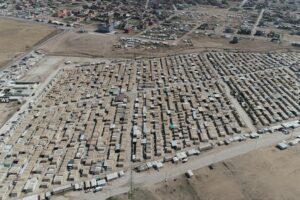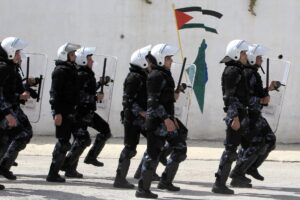
Due to what they describe as the mediators’ leniency regarding Hamas’ refusal to disarm, Saudi Arabia, the United Arab Emirates, and Bahrain have issued warnings that the effort to end the war is at risk of collapsing. Arab and US diplomatic sources confirmed to Israel Hayom that messages to this effect were sent by the Gulf states of the moderate Sunni axis to the White House and to the architects of the Gaza plan, President Donald Trump’s envoys, Steve Witkoff and Jared Kushner.
The warnings focus on Hamas’ conduct since the ceasefire began, including the systematic assassination of rivals from competing clans, armed displays in the streets, extortion of local merchants, and statements by senior officials flatly rejecting the prospect of disarmament.
In their latest communication with Washington, the Saudis warned that unless there is a decisive US response and a change in approach by the mediators—Egypt, Qatar, and Turkey—to enforce the plan’s terms on Hamas, Saudi Arabia will not participate in the continuation of the process. A Saudi diplomatic source confirmed to Israel Hayom that such messages were delivered to the Americans.
Deliberate but unofficial delay. Red Cross vehicles in the Strip. Photo: Reuters
He said that for months Saudi Arabia has made clear its position: there is no viable solution to the war in Gaza or to the future of the Palestinians in general as long as Hamas remains part of the equation. “This organization has inflicted enormous harm on the Palestinian people, a war that led to the deaths of tens of thousands of its own, the destruction of the entire Gaza Strip, and now it insists on preserving the muqawama (armed resistance)?”
He added that it is “a resistance that has caused a catastrophe even worse than the Nakba. It is absolutely clear that Hamas will sabotage any force—Palestinian, Arab, or international—seeking to restore order in the Strip. As long as there is no serious move to eliminate Hamas’ influence and control over Gaza, there is no chance of its rehabilitation and reconstruction.”
In the messages sent to the US, it was explicitly stated that Saudi Arabia is downgrading its level of engagement in the implementation of the Trump plan, and that it is unlikely to attend the reconstruction conference Egypt plans to host next month.
The Emiratis have expressed a similar stance, but since they are already investing considerable resources in aiding Gaza’s displaced, their warnings are focused on areas under Hamas control. According to their messages, they will continue rebuilding efforts in the southern parts of the Strip where Israel maintains military control. However, they have made clear that they will not participate in reconstructing other areas unless a framework is in place for Hamas’ disarmament and for full civilian and security control by international forces, as outlined in the Trump plan.
Absent from the summit in Egypt: Saudi Crown Prince Mohammed bin Salman and UAE ruler Mohammed bin Zayed. Photo: AFP
Several prominent Arab leaders were notably absent from the Sharm el-Sheikh summit held on the eve of the holiday—including Saudi Crown Prince Mohammed bin Salman and Emirati ruler Mohammed bin Zayed. Trump noted their absence during his speech. As previously reported in Israel Hayom, the two leaders chose not to attend the ceremonial event hosted by Egyptian President Abdel Fattah el-Sisi, partly due to the return of Qatar, a supporter of the Muslim Brotherhood and Hamas, to center stage.
Though the Saudis did not mention Qatar by name in their messages to the Americans, they warned that increasing the influence of “countries that destabilize the region” would derail the momentum of prosperity Trump has touted. “In his speeches in the Knesset and in Sharm, Trump spoke of an end to an era of terror and hatred, yet at the same time, his people are elevating those who use their wealth and media outlets to promote hatred and terrorism,” a senior Arab diplomat told Israel Hayom bitterly.
Earlier this week, Israel Hayom revealed, citing a Saudi source, that Qatar was expected to help Hamas maintain its presence and return at an opportune moment. Those warnings are now being echoed in official and semi-official Saudi messages. The paper also previously reported that the Saudis would not engage meaningfully in Gaza as long as there was “even one Kalashnikov” in Hamas’ hands.
President Donald Trump and Saudi Crown Prince Mohammed bin Salman gesture as they meet delegations at the Royal Palace in Riyadh, Saudi Arabia, Tuesday, May 13, 2025 AP
Bin Salman is expected to visit Washington next month. If the visit proceeds, his meeting with Trump is expected to be particularly significant. It is worth recalling that during Trump’s Gulf visit six months ago, he announced massive cooperation agreements, investments, and arms deals with Saudi Arabia, which was then the centerpiece of US attention.
At this stage, Israel has avoided announcing major measures against Hamas, such as suspending aspects of the ceasefire. The Rafah crossing remains closed, reportedly due to ongoing logistical preparations by Egypt, and is expected to reopen only by mid-next week.
It is possible that these “logistical difficulties” mirror Hamas’ own “logistical issues” in handing over the hostages—i.e., an intentional but unofficial delay. As for humanitarian aid, it is entering Gaza on a regular basis, though not yet in the quantities Hamas demanded, and currently includes food and essential medical supplies.
On the military front, however, Israel has escalated its responses, opening fire on any attempt by Hamas or other Palestinians to approach Israeli soldiers or cross the yellow line demarcating the area under Israel Defense Forces control from the territory controlled by the terrorist group. In some cases, this includes groups opposed to Hamas, but Israeli officials admit there is no significant intervention, partly due to fears that such involvement would spark escalation.
Tanks on the Gaza border. Photo: IDF Spokesperson’s Unit IDF Spokesperson’s Unit
Israel still has many levers of pressure on Hamas, but as the war and the path to the Trump plan have shown, only a combination of overwhelming military force, US backing, and political and economic pressure can yield results against the terrorist organization.
Dr. Dan Diker, President of the Jerusalem Center for Security and Foreign Affairs, warned that without full American backing for military action, the Gaza plan may be reduced to nothing more than a hostage deal. According to Diker, Hamas interprets the plan in a completely different way, and Turkey and Qatar are determined to support it behind the scenes. “Hamas will not voluntarily disarm, and only the IDF can enforce demilitarization and disarmament.”
Diker expressed concern that the White House is pushing for “closure” before all 19 points are implemented, which could leave Hamas free to continue its tactic of “drip” attacks, such as incendiary balloons and sporadic fire, making it harder for Israel to respond. The key to the next phase, he said, is unequivocal American support for Israel’s right to enforce the plan, strict oversight of the Philadelphi Corridor, and zero tolerance for violations. Otherwise, he warned, the region risks slipping back into a dangerous pattern of slow attrition.
A senior Israeli official said today that “in coordination with the US and the mediators, Israel is applying pressure to complete the phase of recovering all the bodies held by Hamas.” He added, “Israel has shared intelligence with the mediators to help locate the deceased hostages and complete the operation.”





